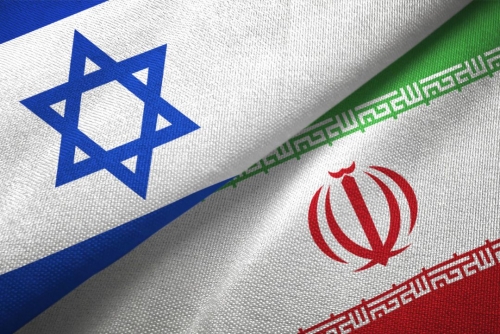Iran says Israel attack 'declaration of war'
TDT | Manama
Email: mail@newsofbahrain.com
Tensions in the Middle East surged dramatically on Friday after Iran accused Israel of launching a large-scale wave of airstrikes targeting its military and nuclear infrastructure, calling the assault a “declaration of war.” The attacks reportedly killed several senior Iranian officials, including Armed Forces Chief of Staff Mohammad Bagheri and top nuclear scientists.
Iranian authorities reported that the Israeli offensive struck nearly 100 locations across the country, including critical nuclear facilities such as the Natanz underground enrichment site. Supreme Leader Ayatollah Ali Khamenei warned Israel of a “bitter and painful” response, while the Iranian military vowed there would be “no limits” to their retaliation.
In a formal letter to the United Nations, Iranian Foreign Minister Abbas Araghchi urged the UN Security Council to immediately intervene, denouncing the Israeli strikes as a violation of international law and a destabilizing act of aggression.
Meanwhile, the Israeli military confirmed it had carried out the precision strikes using around 200 fighter jets. Israeli Prime Minister Benjamin Netanyahu stated that the attacks targeted the “heart of Iran’s nuclear enrichment program,” aiming to prevent Iran from reaching what Israeli intelligence described as the “point of no return.”
US President Donald Trump acknowledged prior knowledge of the Israeli operation in an interview with Fox News but insisted that the United States was not directly involved. He reiterated that Tehran must never acquire a nuclear weapon, warning Iran not to target American personnel or assets in response.
The United States emphasized its non-involvement while also drawing down staff in the region due to the risk of escalation. Secretary of State Marco Rubio issued a direct warning to Tehran not to retaliate against US military bases, asserting that any such move would carry severe consequences.
Iranian state media confirmed the deaths of high-ranking military officials, including the head of the Revolutionary Guards, Hossein Salami, and six nuclear scientists. A senior adviser to Ayatollah Khamenei was also reportedly wounded in the attacks. Khamenei has since appointed new commanders to replace the fallen officials.
The strikes caused widespread panic in Tehran, with deserted streets and long queues forming at petrol stations. Civilian casualties were also reported, including women and children. AFP images showed the aftermath of a strike on a residential building, with significant localized damage.
Air traffic was suspended at Tehran’s Imam Khomeini International Airport, and neighboring countries including Iraq and Jordan closed their airspace. Major Gulf airlines canceled flights to and from Iran, Iraq, Jordan, Lebanon, and Syria.
Jordan’s military confirmed that its air defense systems intercepted multiple drones and missiles that had entered its airspace, highlighting the regional spillover risk.
Oil prices spiked and global markets reacted with uncertainty, underscoring fears of a broader conflict. The UN’s International Atomic Energy Agency (IAEA) stated it is “closely monitoring” the situation, confirming damage at the Natanz nuclear site.
With a sixth round of Iran-US nuclear negotiations scheduled to take place in Oman on Sunday, the attack casts significant doubt over whether talks will proceed. President Trump said he remained hopeful but acknowledged the Israeli offensive could either derail or accelerate the diplomatic process.
As the region braces for the next steps, Iran’s military reaffirmed its readiness to respond, declaring that Israel had “crossed all red lines” and would face severe consequences.
Related Posts

